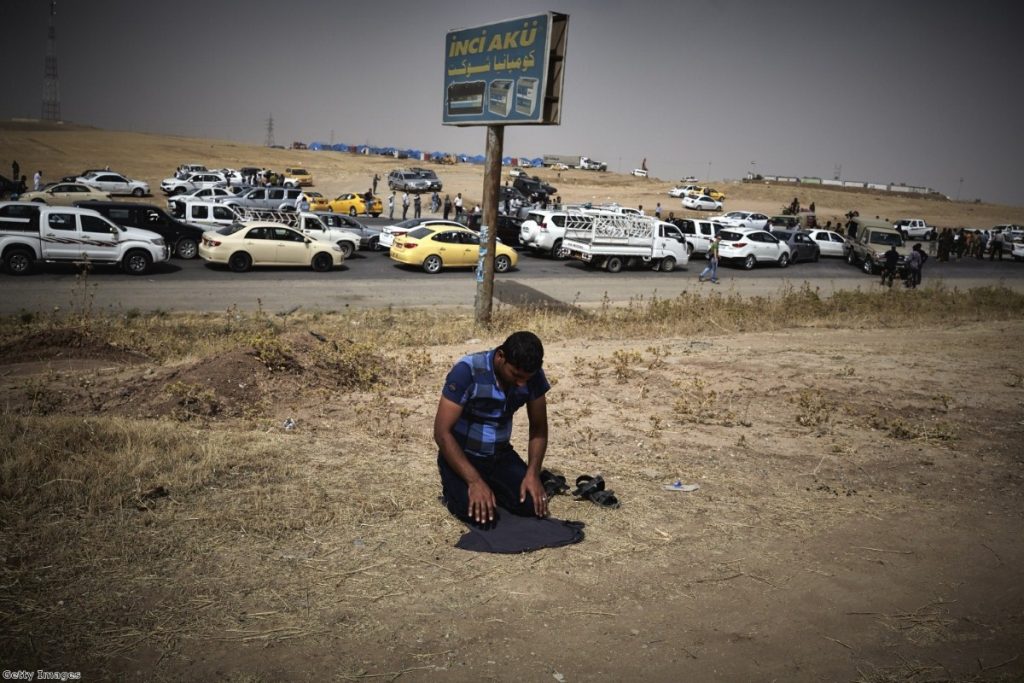Supporters of Iraq face the reckoning
Supporters of the invasion of Iraq are being forced to defend the arguments they made over ten years ago, as events in the country seem to vindicate those who opposed the war.
As workers in the US' Baghdad embassy were evacuated ahead of a possible advance into the capital by fighters from the Islamic State in Iraq and the Levant (Isis) and photo evidence emerged of massacres, Boris Johnson branded Tony Blair's defence of the Iraq invasion "mad".
The former prime minister emerged yesterday to insist that the current spectacle was a result of the civil war in Syria rather than the invasion which toppled Saddam Hussein in 2003.
The London mayor said Blair "has finally gone mad" and that his comments were "unhinged" and "breathtakingly at variance with reality".


"When we voted for that war – and I did, too – we did so with what now looks like the hopelessly naive assumption that the British and American governments had a plan for the aftermath," Johnson wrote in his Telegraph column.
"In other words, I wanted to get rid of Saddam, and I fondly imagined that there would be a plan for the transition. As time has gone by, I am afraid I have become more and more cynical about the venture."
Johnson went on to back what were considered radical anti-war voices of the time who said the invasion was about oil.
And in a damning aside he suggested Blair went into the war to boost his own ratings as prime minister.
"Blair went in fundamentally because he (rightly) thought it was in Britain's long-term interest to be closely allied with America, and also, alas, because he instinctively understood how war helps to magnify a politician," he said.
Isis is composed mostly of Islamic extremists who fought against president Bashar al-Assad in Syria, although they have also fought battles against more moderate anti-Assad forces for being insufficiently Islamic.
They enjoy some support from Sunni Iraqis, who have long been outraged by the heavy-handed anti-Sunni policies of Iraqi president Nouri al-Maliki.
The Shia leader has moved ever closer to Iran in recent weeks as the scale of the Isis advance became clear. The country is bolstering the weak Iraqi military response with its own, better trained and paid fighters.
The US is now almost certainly about to enter into talks with Iran about cooperating to stem Isis' advance.
The current period of instability could end with Iraq broken up into various states, at least some of which would be incorporated into Iran.
Others could be hardline Islamic terror states – the first time groups like al-Qaida, who are actually considered more moderate than Isis – have ever taken full control of a state.
Western governments have watched hopelessly as the situation descends into chaos, with no good options.
The situation is very similar to that predicted by opponents of the invasion ten years ago, who often warned that the overthrow of Hussein, a secular dictator, would bolster Islamic extremism and boost Iran's role as a regional power.
The strong link between current events and many of the warnings of the anti-war movement has forced many politicians who supported the invasion to make statements apologising for their decision or pinning the blame for the disaster exclusively on the lack of preparation for the aftermath.
"I don't think the invasion itself was a mistake, but I have always thought many mistakes took place in the aftermath of the invasion," foreign secretary William Hague told the Today programme this morning.
"It's entirely possible to say it was the right thing to remove Saddam Hussein but that mistakes were made in the aftermath of that
"In any case I don't think this entire business should be seen through the prism of western intervention or not.
"Sectarianism in the Middle East is not just not provoked or subdued by western intervention. There are other forces at work."
Lord Prescott, deputy prime minister under Blair, responded angrily to his former boss' comments.
"Put on a white sheet and a red cross and we are back to the Crusades," he said.
"It is all about religion. In these countries it has gone on for a thousand years."
Malcolm Rifkind, chairman of the parliamentary intelligence and security committee, said the situation in Iraq was an "utter disaster" and that Blair was trying to salvage his reputation.
Yesterday photos emerged which appeared to show Isis fighters trooping off captured Iraqi service men and then executing them.
Many service men are understood to be deserting in the face of murderous Isis attacks.
The current military strategy of the Iraqi government appears to be to protect Baghdad but increasingly give up on the rest of the country.












